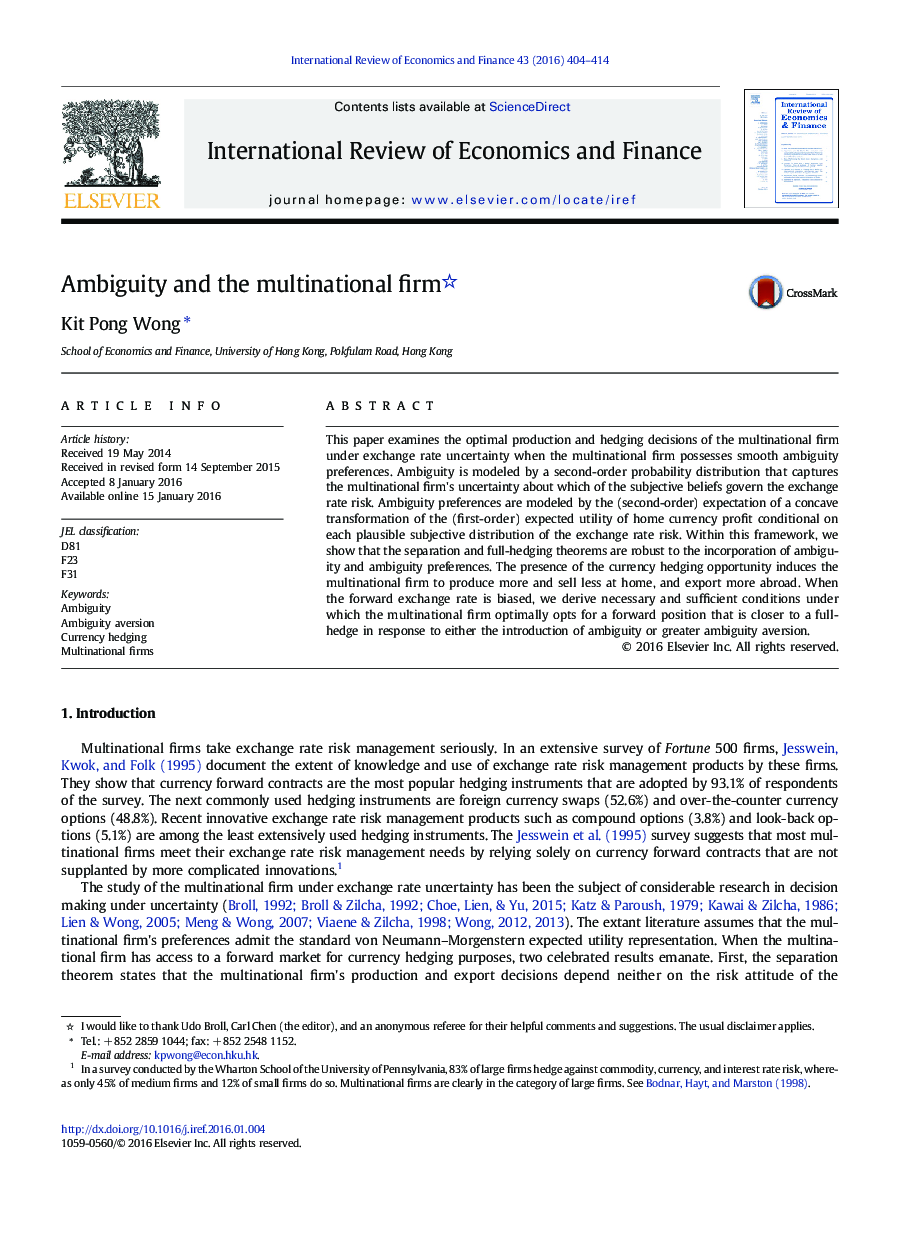| Article ID | Journal | Published Year | Pages | File Type |
|---|---|---|---|---|
| 5083358 | International Review of Economics & Finance | 2016 | 11 Pages |
â¢The multinational firm under exchange rate uncertainty is ambiguity averse.â¢The separation and full-hedging theorems hold when ambiguity prevails.â¢Currency hedging promotes production and exports.â¢Ambiguity strengthens the multinational firm's incentive to hedge.
This paper examines the optimal production and hedging decisions of the multinational firm under exchange rate uncertainty when the multinational firm possesses smooth ambiguity preferences. Ambiguity is modeled by a second-order probability distribution that captures the multinational firm's uncertainty about which of the subjective beliefs govern the exchange rate risk. Ambiguity preferences are modeled by the (second-order) expectation of a concave transformation of the (first-order) expected utility of home currency profit conditional on each plausible subjective distribution of the exchange rate risk. Within this framework, we show that the separation and full-hedging theorems are robust to the incorporation of ambiguity and ambiguity preferences. The presence of the currency hedging opportunity induces the multinational firm to produce more and sell less at home, and export more abroad. When the forward exchange rate is biased, we derive necessary and sufficient conditions under which the multinational firm optimally opts for a forward position that is closer to a full-hedge in response to either the introduction of ambiguity or greater ambiguity aversion.
